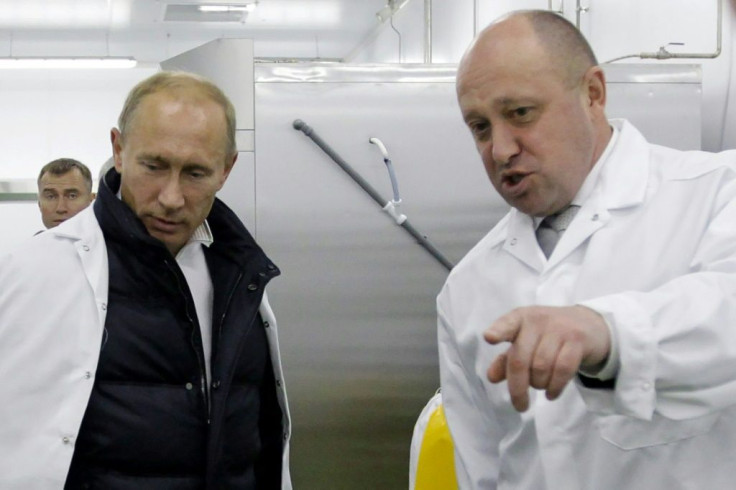Prigozhin: Kremlin 'Chef' Juggling Many Plates
Dispatching mercenaries to fight in Africa and Syria. Election interference in the United States. Threats against Russian opposition figure Alexei Navalny.
There is almost no sensitive issue involving Russia where the secretive businessman Yevgeny Prigozhin does not figure or is not accused of being linked.
But the 59-year-old native of Saint Petersburg keeps a low profile, leaving observers speculating over how key his role is in modern Russia.
He has been the target of US and European sanctions over the role of the Wagner mercenary group and has been accused by a charity co-founded by Hollywood star George Clooney of stirring up trouble in the war-torn Central African Republic.
But Prigozhin has dismissed the accusations, denying any role in conflicts in Africa and irritably describing the accusations as getting in the way of his business interests.
Prigozhin rose from a modest background to become part of the inner circle of Putin who also harks from the former imperial capital on the Baltic Sea.
He spent nine years in prison in the final period of the USSR after being convicted of fraud and theft, emerging in 1990 as the Soviet Union was collapsing.
In the chaos of the 1990s, he began a moderately successful business selling hot dogs.
From there he fell into the restaurant business and opened a luxury location in Saint Petersburg whose customers included Putin, then making the transition from working in the Soviet KGB to local politics.
The Concord catering group he founded at one point worked for the Kremlin, earning Prigozhin the soubriquet of "Putin's chef".
But the sheer range of his acknowledged and alleged interests have made this name something of a misnomer.

Prigozhin shuns the limelight and there are scant images of the man who rarely makes public appearances. When he is captured on camera, it is with a shaven head, a piercing stare and usually in a dark suit.
One of the best known images shows him at the Kremlin in 2011, bending down over a seated Putin as he offers him a dish with the Russian leader looking back with an approving glance.
Reports in Russian media have described him as a billionaire with a vast fortune built on state contracts. But the true extent of his wealth is not known.
He was sanctioned by Washington which accused him of playing a role in meddling in the 2016 presidential elections, in particular through his internet "troll factory".
Prigozhin denied any involvement and in March asked for $50 billion in compensation from the United States.
He has always denied links to the Wagner mercenary group which has long been accused of sending fighters to serve the Kremlin's interests in Syria, Libya and countries in sub-Saharan Africa.
In July 2018, three journalists researching Wagner's operations in Central Africa for an investigative media outlet were killed in an ambush.
Prigozhin has been unusually vocal in the wake of the poisoning in August of Navalny, who fell ill on a flight in Siberia and was then transferred for treatment in Germany.
The two have never made any secret of their enmity, with Navalny's anti-corruption group accusing a firm that worked with Concord of serving food in schools that was dangerous for the health of children.
Prigozhin sued Navalny for libel and a court ordered that the campaigner's group pay over one million dollars in damages.
Not mincing his words, Prigozhin said: "I intend to strip this group of unscrupulous people of their clothes and shoes."
He even said he had transferred money to the hospital in Berlin where Navalny was being treated to pay for his care so that he fully recovered and could pay the money. The hospital rejected the offer.
When the EU announced in October that it was sanctioning Prigozhin for undermining peace in Libya, he said he was saddened by the move and claimed to have many friends in Europe.
He has announced he is suing the EU in response to the penalties he said were "introduced illegally and without reason."
© Copyright AFP {{Year}}. All rights reserved.





















